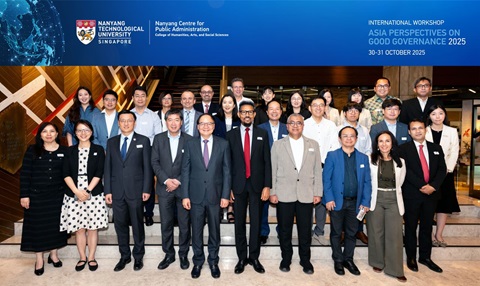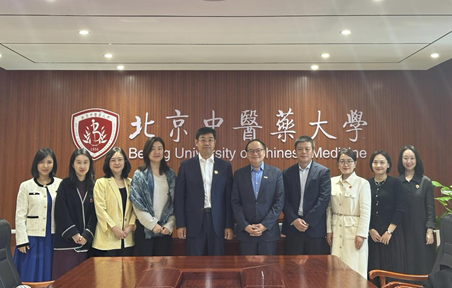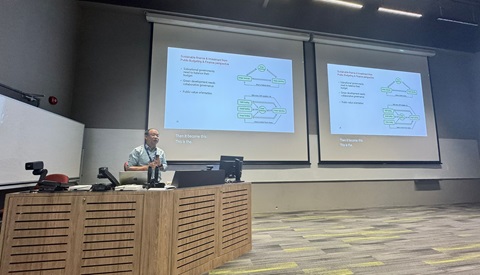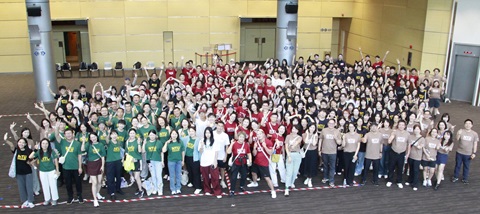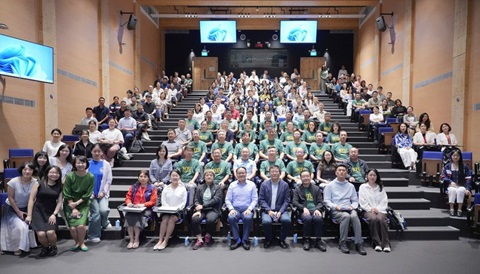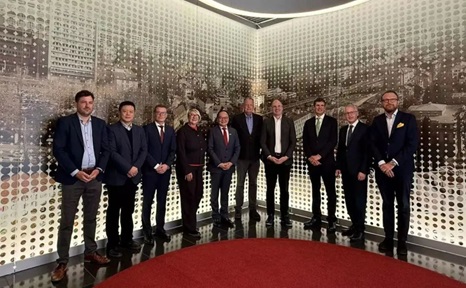9th Stratagem-NTU Sino-Singapore Dialogue: The Relevance of the Digital Silk Road in a Post-COVID Asia
The 9th Stratagem Group–Nanyang Technological University, Singapore (NTU Singapore) Sino-Singapore Dialogue, themed “The Relevance of the Digital Silk Road in a Post-Covid Asia”, was held on 2 March 2021. The event featured distinguished
speakers from China, Italy, Hong Kong and Singapore. In light of the disruption brought about by COVID-19, the speakers shared their perspectives on how countries and businesses alike could take this opportunity to re-think their digital strategy
in order to carve out a more resilient future and to embrace technology as they adapt. The event was well received with more than 250 registered participants from across multiple industries and countries from the region.
In her opening address, Ms Penny Low, President and Founder of the Social Innovation Park Singapore, highlighted that as part of China’s massive Belt and Road Initiative (BRI), the Digital Silk Road (DSR) has become more relevant because of the
paradigm shifts brought about by COVID-19. The pandemic has accelerated the transition towards a digital economy on a global scale, and the importance of information and communications technology (ICT) to economic growth and national development will
be more pronounced in the days ahead. Ms Low highlighted that ASEAN as a region should prioritise developing technological infrastructure to enable the region to tap on the growing opportunities in the fields of Artificial Intelligence (AI), big data
and cloud computing.
Mr Shen Yuning, Vice-Chairman, Digital Silk Road International Enterprises Federation of China, highlighted the importance of technological governance even as the DSR lays the framework for increased international cooperation in the digital and technological
space across fields such as telecommunications networks, artificial intelligence capabilities, cloud computing, e-commerce, mobile payment systems, surveillance technology and smart cities. To facilitate and promote international cooperation, governments
must also invest time and effort to establish laws, regulations, and standards to speed up digital adoption across all stakeholders and provide stakeholders with the necessary confidence.
Dr Alessandro Arduino, Principal Research Fellow, Middle East Institute, National University of Singapore and Co-Director, Security & Crisis Management International Centre, Shanghai Academy of Social Science, the People’s Republic of China,
shared that along with the increased proliferation of digital technology, it comes with a corresponding increase in risk. Therefore, it is key that security risk management measures are discussed and implemented, especially in e-commerce, cybersecurity
and cryptocurrencies. Dr Arduino also spoke about how actors would need to draw a fine balance between managing commercial requirements viz a viz security requirements, both at a national level and corporate level.
Dr Henry Chan, Senior Visiting Research Fellow, Cambodia Institute for Cooperation and Peace, added that the pandemic has battered economies while making digital infrastructure even more essential. Developing countries worldwide desperately need access
to inexpensive, high-quality technology to expand wireless phone networks and broadband internet coverage. Dr Chan believes that the scope of DSR is so immense that extensive collaboration in the DSR operation is always possible such as the 15000
km PEACE (Pakistan East Africa Connecting Europe) project. Despite the current geopolitical climate, a multilateral approach through the DSR would help ensure that all countries can fully benefit from the advent of a digital economy.
Dr Pei Sai Fan, Adjunct Professor, National University of Singapore, wrapped up the session by expounding on how Singapore can be relevant in the DSR and the region. Dr Pei elaborated on digital connectivity, digital elements and digital standards. Dr
Pei encouraged Singapore to continue building international connectivity and partner with its ASEAN neighbours in establishing digital regulations and standards for the region.
During the discussion, there was a unanimous emphasis on education on the part of governments and private enterprises. The panel highlighted that it was imperative that governments invest in human capital to ensure a pipeline of qualified and competent
talent to allow nations to reconfigure their workforce and carry out the planned digital transformations. A multilateral approach towards digital transformation in the region would foster a collaborative and sustainable mindset as ASEAN aims
to strengthen policy synergy and economic cooperation.

Clockwise from top left:
Mr Shen Yuning (on screen), Dr Pei Sai Fan, Dr Henry Chan, Dr Alessandro Arduino and Ms Penny Low

